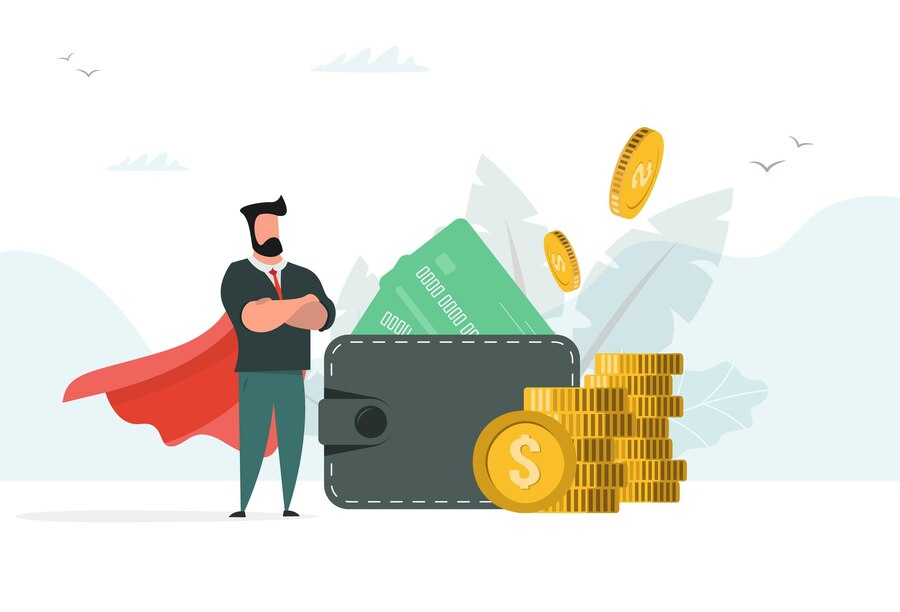As a crypto enthusiast you have probably heard mentions of the Worldcoin project several times, and you are wondering if it’s worth your attention. Should you add it to your portfolio? What does the cryptocurrency promise to offer? The project promises to promote financial inclusion on a global scale and change the way people think about digital identity.
The rapidly evolving cryptocurrency landscape is marked by innovation, speculation, and the pursuit of decentralized finance. Among the myriad digital currencies vying for attention, Worldcoin has emerged with an intriguing proposition: to create a global financial system accessible to everyone, while addressing issues like digital identity verification. But can Worldcoin truly carve out a name for itself in the crowded crypto sector? Let’s explore its unique features, the challenges it faces, worldcoin price prediction, and its potential to leave a lasting impact.
Image source https://unsplash.com/photos/a-laptop-computer-sitting-on-top-of-a-desk-8Y_EuWYU5uQ
Worldcoin’s Unique Value Proposition
Worldcoin is not just another cryptocurrency aiming to facilitate transactions or act as a store of value. It positions itself as a tool to solve two interconnected problems: global financial inclusion and digital identity. Its most distinct feature is the World ID, a digital identity that proves an individual’s uniqueness while preserving privacy. To create this ID, users must have their irises scanned by an Orb, a specialized biometric device. Once verified, users receive Worldcoin tokens as an incentive for participation.
This focus on universal accessibility and privacy is ambitious. The idea is to democratize access to the financial system, especially for the 1.4 billion people globally who remain unbanked. By ensuring that individuals can prove their uniqueness without revealing sensitive personal data, Worldcoin aims to facilitate fairer and more secure online interactions.
Potential Advantages of Worldcoin
1. Financial Inclusion:
Worldcoin’s mission aligns with the broader goal of bringing the unbanked and underbanked into the global economy. Traditional banking systems often exclude individuals in developing regions due to lack of infrastructure, identification documents, or financial history. Worldcoin’s innovative identity verification process offers a way around these barriers, allowing anyone with access to an Orb to join the network.
2. Privacy-Preserving Technology:
Unlike many identity systems that compromise privacy, Worldcoin employs advanced cryptographic techniques such as zero-knowledge proofs. These ensure that users can prove they are unique without revealing personal information. In an era where data privacy concerns are paramount, this feature could be a key differentiator.
3. Global Accessibility:
Worldcoin’s strategy involves deploying Orbs in various locations worldwide, making it easier for individuals to join the network. By incentivizing participation with free tokens, it encourages widespread adoption, potentially creating a broad user base faster than more traditional cryptocurrencies.
Challenges Facing Worldcoin
1. Privacy Concerns and Trust Issues:
While Worldcoin emphasizes privacy preservation, the concept of biometric data collection—particularly iris scans—raises significant concerns. Many users may be skeptical about how their data is stored, who controls it, and whether it could be misused. The centralized nature of Orb distribution could also be seen as a contradiction to the decentralized ethos of cryptocurrency.
2. Regulatory Hurdles:
Worldcoin, like all cryptocurrencies, faces potential regulatory challenges. Governments and financial regulators around the world are increasingly scrutinizing digital currencies, particularly those with novel features like biometric identity verification. Navigating these regulatory landscapes will be crucial for Worldcoin’s success, and missteps could stifle its growth.
3. Orb Distribution and Adoption Barriers:
The success of Worldcoin depends on the widespread distribution and adoption of its Orbs. Deploying these devices globally is a logistical challenge, particularly in remote or economically disadvantaged regions. Additionally, the success of the project hinges on users trusting the technology enough to participate—a difficult hurdle in areas where technology adoption is slower.
How Worldcoin Compares to Other Cryptocurrencies
To assess Worldcoin’s potential, it’s essential to compare it with established cryptocurrencies like Bitcoin and Ethereum, as well as niche projects like Toncoin and Render Token, which cater to specific use cases.
Bitcoin remains the undisputed leader in the crypto world, primarily as a store of value akin to digital gold. Unlike Bitcoin, Worldcoin is not about scarcity but inclusivity.
Ethereum, with its robust smart contract ecosystem, offers programmability that Worldcoin currently lacks. However, Worldcoin’s focus on digital identity could complement decentralized applications (dApps) on Ethereum or similar platforms.
Toncoin, known for its connection to Telegram, focuses on integrating blockchain technology with a massive user base. Worldcoin similarly aims for broad adoption, but with a focus on financial inclusion rather than social media integration.
Render Token, which is geared towards decentralized GPU rendering, illustrates how niche tokens can carve out specific use cases. Worldcoin’s niche—digital identity—could be equally impactful if it addresses a critical need in the digital economy.
The Road Ahead: Opportunities and Risks
Worldcoin has a significant opportunity to make an impact, particularly if it successfully addresses concerns about privacy, security, and equitable access. The project’s ability to provide a decentralized yet privacy-preserving identity solution could make it a valuable asset in the broader Web3 ecosystem, where identity verification is becoming increasingly critical.
However, the risks are considerable. Regulatory challenges, public skepticism about biometric data, and the logistical hurdles of Orb distribution could impede its progress. To overcome these challenges, Worldcoin must be transparent, build trust through robust security measures, and engage with regulators to ensure compliance without compromising its core principles.
Can Worldcoin Make a Name for Itself?
Worldcoin’s ambitious vision of democratizing access to digital identity and financial systems positions it as a potential game-changer in the crypto sector. Its innovative approach could address critical issues of financial inclusion and digital privacy, setting it apart from other cryptocurrencies. However, the project’s success will depend on its ability to build trust, navigate regulatory landscapes, and achieve widespread adoption.
In a sector known for volatility and rapid evolution, Worldcoin has both the potential to make a lasting impact and the risk of becoming another ambitious project that falls short. Only time will tell whether it can truly make a name for itself—but the world will certainly be watching.

























































































































